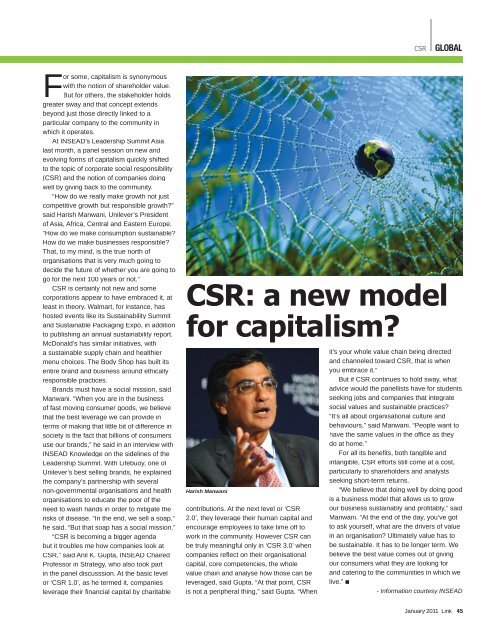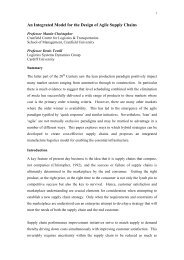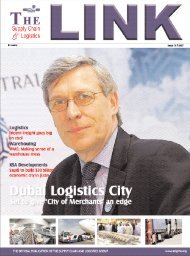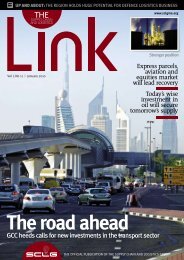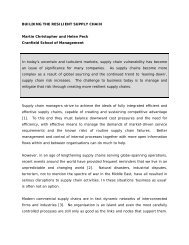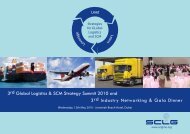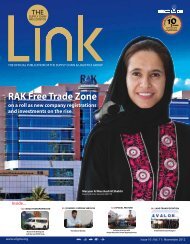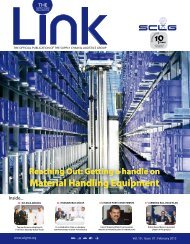Free to Download - SCLG
Free to Download - SCLG
Free to Download - SCLG
- TAGS
- download
- sclg
- sclgme.org
Create successful ePaper yourself
Turn your PDF publications into a flip-book with our unique Google optimized e-Paper software.
For some, capitalism is synonymous<br />
with the notion of shareholder value.<br />
But for others, the stakeholder holds<br />
greater sway and that concept extends<br />
beyond just those directly linked <strong>to</strong> a<br />
particular company <strong>to</strong> the community in<br />
which it operates.<br />
At INSEAD’s Leadership Summit Asia<br />
last month, a panel session on new and<br />
evolving forms of capitalism quickly shifted<br />
<strong>to</strong> the <strong>to</strong>pic of corporate social responsibility<br />
(CSR) and the notion of companies doing<br />
well by giving back <strong>to</strong> the community.<br />
“How do we really make growth not just<br />
competitive growth but responsible growth?”<br />
said Harish Manwani, Unilever’s President<br />
of Asia, Africa, Central and Eastern Europe.<br />
“How do we make consumption sustainable?<br />
How do we make businesses responsible?<br />
That, <strong>to</strong> my mind, is the true north of<br />
organisations that is very much going <strong>to</strong><br />
decide the future of whether you are going <strong>to</strong><br />
go for the next 100 years or not.”<br />
CSR is certainly not new and some<br />
corporations appear <strong>to</strong> have embraced it, at<br />
least in theory. Walmart, for instance, has<br />
hosted events like its Sustainability Summit<br />
and Sustainable Packaging Expo, in addition<br />
<strong>to</strong> publishing an annual sustainability report.<br />
McDonald’s has similar initiatives, with<br />
a sustainable supply chain and healthier<br />
menu choices. The Body Shop has built its<br />
entire brand and business around ethically<br />
responsible practices.<br />
Brands must have a social mission, said<br />
Manwani. “When you are in the business<br />
of fast moving consumer goods, we believe<br />
that the best leverage we can provide in<br />
terms of making that little bit of difference in<br />
society is the fact that billions of consumers<br />
use our brands,” he said in an interview with<br />
INSEAD Knowledge on the sidelines of the<br />
Leadership Summit. With Lifebuoy, one of<br />
Unilever’s best selling brands, he explained<br />
the company’s partnership with several<br />
non-governmental organisations and health<br />
organisations <strong>to</strong> educate the poor of the<br />
need <strong>to</strong> wash hands in order <strong>to</strong> mitigate the<br />
risks of disease. “In the end, we sell a soap,”<br />
he said. “But that soap has a social mission.”<br />
“CSR is becoming a bigger agenda<br />
but it troubles me how companies look at<br />
CSR,” said Anil K. Gupta, INSEAD Chaired<br />
Professor in Strategy, who also <strong>to</strong>ok part<br />
in the panel discusssion. At the basic level<br />
or ‘CSR 1.0’, as he termed it, companies<br />
leverage their financial capital by charitable<br />
CSR: a new model<br />
for capitalism?<br />
Harish Manwani<br />
contributions. At the next level or ‘CSR<br />
2.0’, they leverage their human capital and<br />
encourage employees <strong>to</strong> take time off <strong>to</strong><br />
work in the community. However CSR can<br />
be truly meaningful only in ‘CSR 3.0’ when<br />
companies reflect on their organisational<br />
capital, core competencies, the whole<br />
value chain and analyse how those can be<br />
leveraged, said Gupta. “At that point, CSR<br />
is not a peripheral thing,” said Gupta. “When<br />
CSR<br />
GLOBAL<br />
it’s your whole value chain being directed<br />
and channeled <strong>to</strong>ward CSR, that is when<br />
you embrace it.”<br />
But if CSR continues <strong>to</strong> hold sway, what<br />
advice would the panellists have for students<br />
seeking jobs and companies that integrate<br />
social values and sustainable practices?<br />
“It’s all about organisational culture and<br />
behaviours,” said Manwani. “People want <strong>to</strong><br />
have the same values in the office as they<br />
do at home.”<br />
For all its benefits, both tangible and<br />
intangible, CSR efforts still come at a cost,<br />
particularly <strong>to</strong> shareholders and analysts<br />
seeking short-term returns.<br />
“We believe that doing well by doing good<br />
is a business model that allows us <strong>to</strong> grow<br />
our business sustainably and profitably,” said<br />
Manwani. “At the end of the day, you’ve got<br />
<strong>to</strong> ask yourself, what are the drivers of value<br />
in an organisation? Ultimately value has <strong>to</strong><br />
be sustainable. It has <strong>to</strong> be longer term. We<br />
believe the best value comes out of giving<br />
our consumers what they are looking for<br />
and catering <strong>to</strong> the communities in which we<br />
live.”<br />
- Information courtesy INSEAD<br />
January 2011 Link<br />
45


